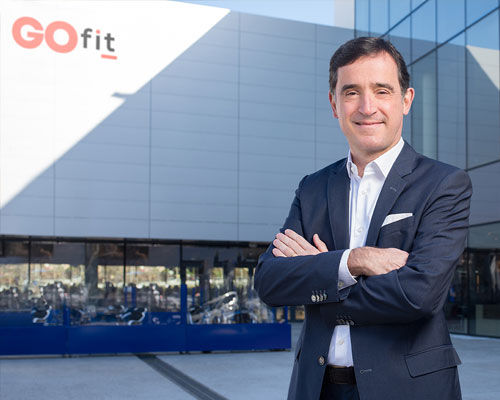features
Talking point: The mega trusts
Are small, independent trusts falling at the hands of the large-scale trusts? Does a move to fewer, larger trusts mean local needs won’t be heard? Vicky Kiernander reports

hese are unprecedented times for leisure trusts, which are operating in incredibly challenging conditions: successive funding cuts on the one hand, and on the other increasing demand for wider services to meet the changing health and wellbeing landscape, not to mention the need to invest in facilities to ensure they meet the demands of modern users.
Set against this backdrop, we’ve seen the emergence of large-scale trusts operating more than 100 sites. Benefiting from economies of scale and big balance sheets, such ‘mega trusts’ pose a threat to small, independent trusts when competing for tenders, with a number of smaller trusts joining the bigger players to survive.
So what does this mean for the industry? Are large-scale trusts best placed to serve local authorities? Or does the dominance of these organisations spell a future of homogeneity and the end of localism? Can both large and small trust happily co-exist to deliver the health and wellbeing agenda?
Stuart Lockwood,
CEO,
Oldham Community Leisure

The emergence of large-scale trusts inevitably means a loss of variety in the sector, and many managers and support staff are forced into redundancy as independent contracts are swallowed up. When hybrid trusts (set up by private sector providers) win a tender, it’s a blow for the entire sector, as operator profit for the benefit of shareholders becomes the primary focus.
Where I believe the impact of larger trusts is felt most is during the tender process, where their experience in bidding is often critical. Small independent trusts aren’t resourced to prepare winning tenders. They’re competing with dedicated teams who have learned the process over countless other bids.
Also, many first generation trusts haven’t been able to build up significant reserves because their councils have reined in any surpluses, resulting in diminishing subsidies. It means these trusts aren’t resourced for a tender process that will scrutinise balance sheets and levels of proposed investment.
In our case, as the incumbent operator we were best placed to create deliverable business plans, allowing us to secure the contract against a significantly larger competitor. We had seen the process coming for a couple of years, which gave us time to rationalise and create a modest level of surplus which we invested in our submission. We also built a new team with the skills and experience needed for the tender process. Our submission was the cheapest possible in terms of our affordability score, but we managed to retain many of our added value aspects in terms of partnership working and health improvement initiatives, so our tender was about much more than managing centres.
On the face of it, larger trust operators have the same economies of scale as national private sector operators; their head office costs are spread across more contracts and they have more buying power, which in theory should mean a lower price for the authority. However, any business model requires a degree of profit – it’s the value of this margin and what happens to it that’s critical.
Customers should be getting an ever-improving experience regardless of who the operator is, and this can be delivered by any trust, large or small.
Trusts which have genuine charitable objectives at their heart can re-invest all their surpluses into improving their offer, so it’s really the optimum model from an end user’s perspective. The smaller independent trust model is the only one that reinvests surpluses solely within the locality served.
"When hybrid trusts win a tender, operator profit for the benefit of shareholders becomes the primary focus" - Stuart Lockwood
Martin Guyton,
CEO,
Tonbridge & Malling Leisure Trust

I believe the trust model represents the best proposition for local authorities and their customers.
However, the smaller local model demands, in a lot of instances, that trusts are part-funded by service fees from local authorities. Meanwhile local authorities are having their budgets squeezed and, while they trumpet the value of health and wellbeing in corporate plans, they don’t have deep enough pockets to fund it because they’re desperately trying to meet the rising cost of statutory duties. This becomes a challenge for the trust: how can it sustain and build on its ambitions and still operate an effective business?
I believe the impact of this is being felt by many smaller trusts, most notably those who are approaching the end of their contracts. Many aren’t in a position to invest sufficiently in the commercial aspects of the business – like gyms, extreme sports and soft play – so they’re partnering in a variety of ways with the bigger trusts simply to survive.
Worse still, they may fall prey to a procurement process that’s financially driven and disappear. I fear that truly local services may suffer as a result.
The values that Tonbridge and Malling Borough Council extolled when it established our trust were around sustainability and localism. Our board members live and work in the borough, exclusively use our facilities and care passionately about what happens in the area. Our services are likewise geared to the intimate needs of local people.
I struggle to see how a large-scale trust, with centres all over the country, can genuinely claim to service the local community in the same way. I suspect many decisions are not made locally, but rather at a regional and head office level by people who may be unaware of local needs and drivers.
I recognise that some local authorities will decide that a larger organisation best serves their needs when taking into account their communities’ financial and service needs. I also acknowledge smaller trusts must recognise the national agenda surrounding, in particular, public health.
However I strongly believe that an adequately resourced local trust – and herein lies the challenge – can respond better to local needs, delivering the national agenda at a local level. These local trusts can make quick decisions and provide services that solely benefit their local populations.
This becomes even more important as we further engage with the inactive population. It seems vital to me that our first duty remains to our users, not a head office with a corporate agenda.
"I struggle to see how a large-scale trust can claim to service the local community in the same way as a local trust" - Martin Guyton
Mark Sesnan,
MD,
GLL

The key challenge facing the whole leisure market, both leisure trusts and private sector firms, is the lack of funding from local authorities. We’re at risk of a ‘perfect storm’ being created. On the one hand, there’s massive demand for leisure operators to meet the health agenda and tackle issues such as diabetes, obesity and smoking – yet funding is being cut. There’s an assumption that there’s a magic wand that can reconcile budget cuts with increased intervention, while maintaining low prices for consumers and implementing the London Living Wage. Ultimately this isn’t a sustainable situation.
Our competitors currently fall into three groups: private sector companies, leisure trusts and what I’d call ‘sham’ trusts – private companies that have established trusts as vehicles for their shareholders to benefit from tax relief. This is an area that has grown recently and needs to be investigated. These ‘sham’ trusts aren’t really charitable, but are benefiting from the same tax breaks created to support genuine not-for-profit organisations.
GLL has expanded steadily since it was first launched in 1993. It was a natural development for us to look at the opportunities beyond London and the south-east, while at the same time we were approached by third parties who were keen to partner with us. Examples of this include our merger with North Country Leisure in Carlisle and Tone Leisure in the West Country.
I don’t believe there’s much validity in criticisms regarding large trusts dominating the market. In every bid we tender for, there are typically around 10 expressions of interest – it remains very competitive.
Of course there are benefits to being a larger trust. A small trust with a single contract has no resilience should they lose that contract, whereas we have 40 contracts. This increases the stability of our operating position, making it easier for us to invest. We also benefit from economies of scale and are able to employ a greater range and depth of specialist skills at our head office.
We are, however, committed to retaining a focus on localism. Each region operates in a semi-autonomous way and we’re in the process of developing a GLL North board that will include councillors and members of local communities. Our aim is for the business to operate in a federated way, and we want to respond to local requirements with localised solutions. What we’re committed to retaining is a national brand with national standards.
Looking ahead, GLL will remain a serious player within the local authority bidding market. However, we’ll continue to diversify, for example with libraries – GLL took on the management of libraries in Lincolnshire in April 2016 – and our wholly-owned estate that currently includes low-cost accessible gyms, trampoline parks and ice rinks.
"We want to respond to local requirements with localised solutions, but via a national brand with national standards" - Mark Sesnan

Brian Leonard,
CEO,
Sporta

The need for community-based leisure and sport facilities has never been greater – yet at the same time we’re faced with huge pressure on these vital services due to the massive cuts forced on local authority budgets. Trusts are having to operate in dramatically different financial circumstances, made worse by loss of expertise in local government, the introduction of unhelpful bureaucratic procurement regimes and a range of other costly new burdens.
The inevitable changes favour rationalisation and consolidation, because it’s often easier for larger organisations to cope with these pressures by delivering services at scale and with an ability to adapt more quickly to changing circumstances.
However, there’s much more to the current scene. Many councils are still supporting a strong local partnership with local trusts, so they can re-invest all surpluses, cross-subsidise between income-generating and other activities, and use their genuinely charitable and social enterprise status to work closely with their communities.
More and more of the trusts are also expanding the range of their work to provide cultural and other local services. Sporta members, both large and small, offer the best approach for securing sustainable social and economic benefits in the future. Sporta currently has its highest ever membership across the UK, and its broadest range of members.
We’re considering the impact of the current pressures and changes which, in some aspects, are threatening and damaging. However, the diversity of trusts is also a strength and we’re doing all that we can to maintain a sense of public purpose in local services.
This is the real issue: how the changes taking place can be managed, place by place, as suits best to ensure the greatest possible public benefit is delivered with the assets and resources available. There’s now a huge responsibility on governments and others to support this cause.
They will be judged in future by how well they respond. ?
"The changes need to be managed, place by place, to ensure the greatest possible public benefit is delivered" - Brian Leonard







































































